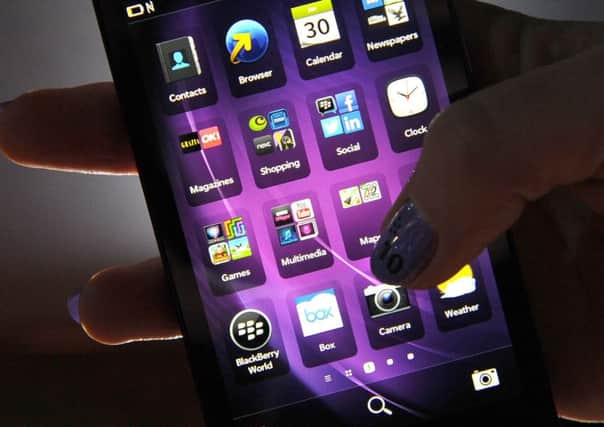Sleeper carriages make a comeback but not like you think


In the last decade or so, it would seem the vast majority of the adult population has managed to sleepwalk into some kind of Orwellian hell in which we are unable to divert ourselves, try though we might, from the bright lights of technology.
For teens, sadly, the battle is already lost. It’s the thing we all (most of us, at least) can’t seem to do without - our mobile phones. This constant and distracting, ever changing flame has us in thrall.
Advertisement
Hide AdAdvertisement
Hide AdNow, apparently, this mild form of self-imposed torture is not just affecting our brain power and relationships, nor even our ability to communicate - all three of which social proclivities are said to be under dire and immediate threat - but, according to new research, late night phone fixation is additionally wreaking havoc with rail commuters, those otherwise stolid pillars of predictableness.
As if their existence could not become any more grey, their world any more lacking in nutrients and leached of colour, it has now been discovered that one in three of these poor creatures recently admitted to ‘sleeping through their stop’, because rather than having to fill their minds with the trivialities of the coming day, think of something interesting to say when they eventually reach the office or fastidiously avoid eye contact with the person opposite, their minds are instead full of facebook, snapchat and other forms of night communication and their eyes firmly shut.
A study commissioned by Vodafone found one in three commuters admitted to sleeping through their stop because of tiredness, with 28 per cent admitting they wake up to check emails and text messages during the night.
Sleep expert Professor John Groeger, from the University of Hull, warned: “Most of us are overdrawn at the Bank of Sleep. Device use just before bed or when we wake in the night, can make restless sleep caused by stress at work even worse. Light from screens can delay sleep, meaning we might make worse decisions through the day because we’re tired.
Advertisement
Hide AdAdvertisement
Hide Ad“Changing our pre-sleep routines and what we do when we wake in the night can hugely improve our sleep quality.”
The research claims 55 per cent of those surveyed felt they stayed up too late working on smartphones, laptops and tablets - with a further 23 per cent saying sleep was disrupted not by the traditional cat wailing on next door’s fence but by having their own smartphones. A quarter also said they found it difficult to go back to sleep having checked their phone at night. One in five parents suggested late night internet use by their children was making it harder for them to get out of bed on a morning for school.
So now, in a world where it seems there’s an app for everything and in a twist of irony almost worthy of George Orwell himself, there is now an app to combat mobile phone app (mis-)use.
Vodafone said the innovation would enable families to put time limits on different devices and their access to the internet.
Advertisement
Hide AdAdvertisement
Hide AdVodafone’s Cindy Rose confirmed: “Striking a healthy balance between online and offline time is hugely important for families.
“Through our new broadband with its innovative companion app, we’re encouraging the nation to ensure they get the sleep they need by switching off from time-to-time, particularly when it’s time to go to bed.”
So, you could, in your haste, install this new app but you will surely be drawn to check it is still working even as your head hits the pillow.
Or you could just put your phone away and knock the dust off that old fangled alarm clock in the loft.